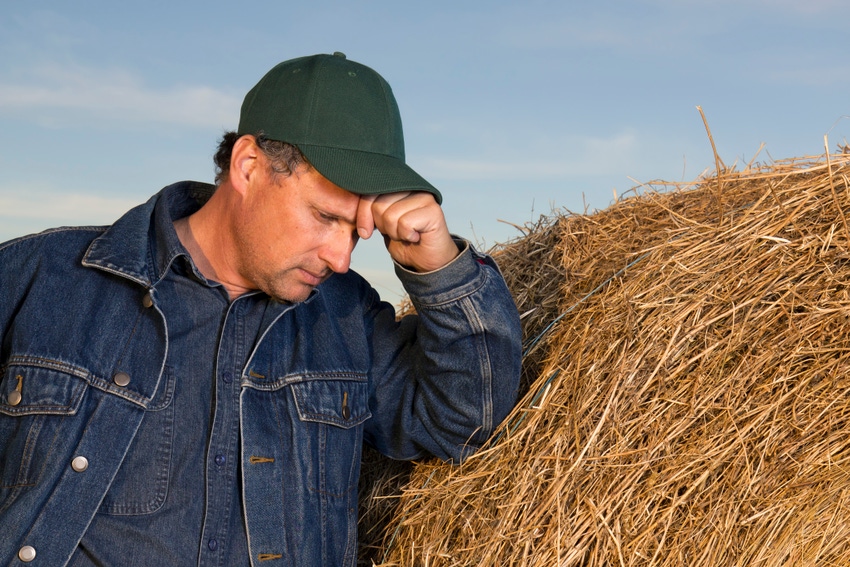
The exercise elicited the predictable reaction from the small gathering: Nervous laughter mixed with awkward smiles. But the gravity of the enquiry was not a matter to take lightly.
Dr. Rebekka Dudensing, an Extension economist with Texas A&M University, stood before the Southern Ag Outlook Conference and proposed a question to the group. She asked us to turn and face the person nearest to us in the room and ask the same question. Things got real quiet for a second.
The outlook conference, as the name implies, is the annual gathering of Extension economists and a few lender representatives from throughout the South, from Texas to Kentucky to Georgia up to Virginia. Minus the farm reporter who crashes the conference, you’d be hard pressed to find a more learned crowd, especially on the financial stresses many farmers face today and have faced for going on six years.
The economists come together for two days to deliver and receive presentations on commodity outlooks and special topics, generously overlaid with hardy discourse with peers, sharing recent and on-going studies and observations from their sides of the field. It also comes with a good dose of fellowship among familiar colleagues and friends.
The outlook’s general 2018/2019 economic memo, in short, was that row crop prices will likely stand pat and good ol’ global supply and demand won’t likely shift for the better any time soon; tariffs are not helping right now; things aren’t as bad as the 1980s farm economy yet; managing financial risk with dogged marketing matters; the farm bill is facing significant political birthing pangs; and things will eventually get better.
Dudensing’s topic for the group was ‘Human Risk: Emotional Health in Farm Populations’.
“Have you ever thought about committing suicide?” That was the question. It hung in the air at first like a hot potato nobody wanted to grab.
I knew the economist nearest me, and we dutifully did as she instructed and asked each other the question. We laughed like two teenagers attempting a lewd punchline. Much of the same was happening around us, and Dudensing said the reaction was predictable and not the point of the exercise.
Asking the question out loud in a group to a friendly face is a feat, but it takes poised courage to spit it out in a real-life situation. That said, I’d wager there are more people walking around who regret not asking such a thing when they thought they should than people who regret asking such a thing to someone they cared about.
Farming is one of the world’s most-hazardous jobs. Add to that farmers are five times as likely to commit suicide as the general population, according to Centers for Disease Control and Prevention.
A farmer or not, it can be hard to see the light in a tough spot.
Dudensing reminded the group that asking a person if they are contemplating suicide doesn’t cause the person to consider suicide if the person wasn’t already thinking about it, and if the person was thinking about it, it has not been shown to make the person follow through on an attempt.
This is a topic most of us prefer to let slide rather than talk about; keep it out of the kitchen so to speak, but it’s one we’d do well to have the courage to grab barehanded and place on the stove’s front burner as needed.
Warning signs for suicide:
Anxiety;
Depression;
Withdrawal from friends and activities;
Alcohol and/or drug abuse;
Refusing to take or hoarding medication;
Aggressive behavior or irritability;
Making a will or final arrangements;
Giving away possessions;
Talking of or hinting at suicide;
Suggesting people would be better off without him/her;
Frequent thoughts of suicide with a plan in mind.
If you need help, it wouldn’t hurt to find some. And if you know someone who needs some help, it wouldn’t hurt (or not hurt much) to help the person find some help.
Good luck. Take care, and thanks for reading.
About the Author(s)
You May Also Like






